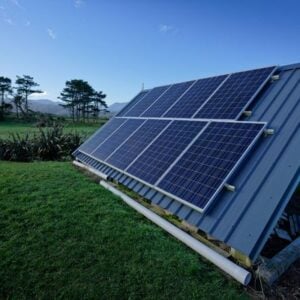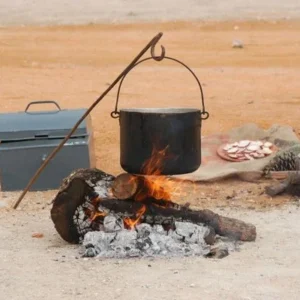Africa is at a crossroads, facing the dual challenge of a rapidly growing youth population and the urgent need to tackle climate change. These dynamics present a rare opportunity to launch a green energy revolution that can drive sustainable development and generate millions of jobs. Achieving Sustainable Development Goal 7—affordable, reliable, sustainable, and modern energy for all—can open doors to a dynamic green economy, with young Africans playing a central role.
Globally, 666 million people still lack access to electricity, with 18 of the 20 most affected countries in Sub-Saharan Africa. Accelerated efforts toward SDG 7 and global energy targets have fueled demand for clean energy and efficiency solutions. The International Energy Agency projects over 30 million jobs in clean energy and low-emissions technologies by 2030. Rapid growth in sectors like sustainable cooling, which could reach $600 billion annually in developing nations by 2050, creates roles such as sustainability analysts and cold chain developers.
Despite the growing demand, a significant skills gap persists. Only 13% of the current workforce is equipped with the necessary green skills, leading to shortages in roles such as solar technicians, environmental engineers, and energy auditors. Bridging this gap requires upskilling youth and providing focused career development support.
To address these needs, Sustainable Energy for All (SEforALL) and Shortlist Futures launched the webinar series “Activating Africa’s Green Economy Through Youth Employment.” The first session focused on jobs in energy efficiency and cold chain solutions, providing market insights and career guidance in sub-sectors like sustainable agriculture and healthcare cooling.
Energy experts highlighted the importance of policy and education in accelerating progress. Elizabeth Wangeci-Chege from SEforALL emphasized energy efficiency’s role in job creation and called for government-led initiatives to enforce green standards. Denis Karema of SokoFresh encouraged youth to innovate within supply chains, while Durodoluwa Femi-Ajala from CoolCycle showcased how youth-led projects can improve livelihoods and reduce emissions through solar-powered cold storage.
Soft skills and financial literacy also emerged as critical components. Dwayne Asembo from Shortlist Futures noted that communication, adaptability, and financial planning are key to sustaining green ventures and building investor confidence.
To advance in energy careers, young Africans are encouraged to gain both technical and soft skills, explore opportunities in energy efficiency and sustainable agriculture, and use resources such as SEforALL’s career guide. Entrepreneurship in areas like energy-efficient appliances and cold storage is also vital to addressing regional challenges.
A strong support system, including mentors, partnerships, and platforms like Mission Efficiency, can help young people scale their impact. Policymakers and investors must also create enabling environments through supportive policies and investments in skill-building programs.
Empowering African youth with the right tools and support will not only help the continent navigate its energy needs but also position it as a global leader in the green energy transition.







